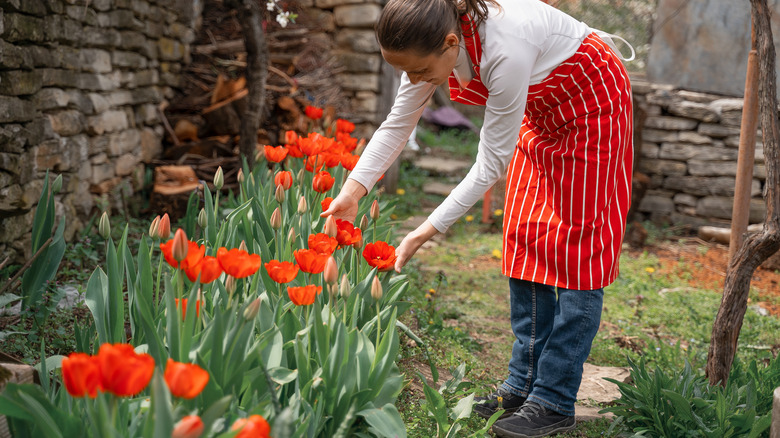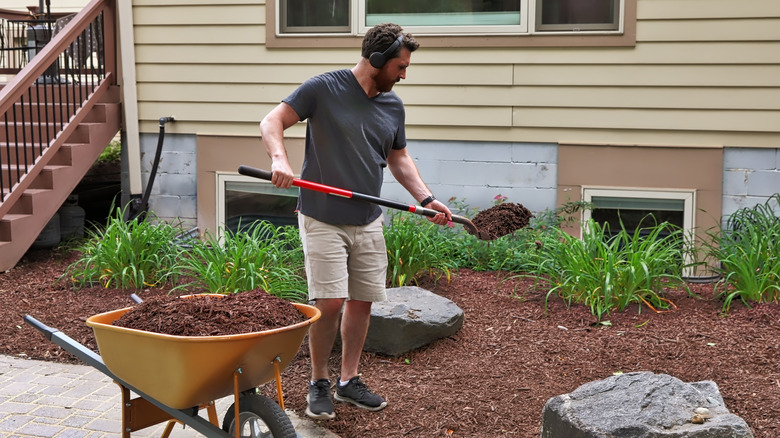The Gardening Mistake You May Be Making With Your Bulbs
If you love the beauty of nature in springtime, you know how magical bulbs can be. These hidden treasures burst into vibrant colors and lovely scents, making your garden come alive. But taking care of these beauties takes more than just a green thumb. One of the most important things to remember when caring for bulbs is feeding them the right nutrients at the right time. It's the difference between a so-so display and a breathtaking garden full of thriving flowers.
Fertilizing bulbs right after planting them can actually prevent them from benefiting from the nutrients they need. Instead, the key to success is all about timing and patience. Wait until you see those first delicate green shoots poking up from the soil. That's when you know the roots are waking up and ready to absorb those vital nutrients. This delicate balance between timing and care is where the art of bulb gardening truly shines, transforming your garden into a tapestry of colors and fragrances that will leave you and your guests in awe.
Fertilizing bulbs in spring
Keep an eye out for those early green shoots peeking up out of the soil. Depending on where you live and what kind of bulbs you're growing, this will usually happen in late winter or early spring. By fertilizing at this stage, you're giving your bulbs the best chance to thrive and produce beautiful flowers. It's also crucial to choose the right fertilizer. Look for a balanced, slow-release fertilizer with a formula like 10-10-10 to guarantee that your bulbs get all the essential nutrients they need to grow big and strong.
Once you've chosen the right fertilizer and seen those green shoots, it's time to provide your plant with nutrients. Be sure to spread it evenly across the soil's surface, making sure not to get any on top of the delicate emerging plants. Remember, when it comes to fertilizing your bulbs, less is often more. Follow the recommended dosage on the packaging. After you've applied the fertilizer, give your garden a good watering. This will help the nutrients sink into the soil and reach the roots where they're needed.
Nurturing your blooms to perfection
While fertilizing in spring is an excellent starting point for successful bulb care, some additional tips and precautions can make your gardening experience even better. For example, before you even think about fertilization, it's crucial to make sure that your soil is rich in organic matter and has good drainage. This is the foundation for healthy plants. If your soil lacks nutrients, you might want to add some organic materials or compost to give your bulbs the best possible start.
Another thing to think about is mulching. Adding a layer of organic mulch, like compost or shredded leaves, can help regulate soil temperature, conserve moisture, and prevent weeds. Just be careful not to cover any emerging shoots. Finally, remember that cultivating plants is a learning process, and every garden is different. Your bulbs might have unique requirements based on local conditions and the specific varieties you're growing. So don't be afraid to experiment and adjust your approach as you gain more experience and get to know your plot of land even better.

